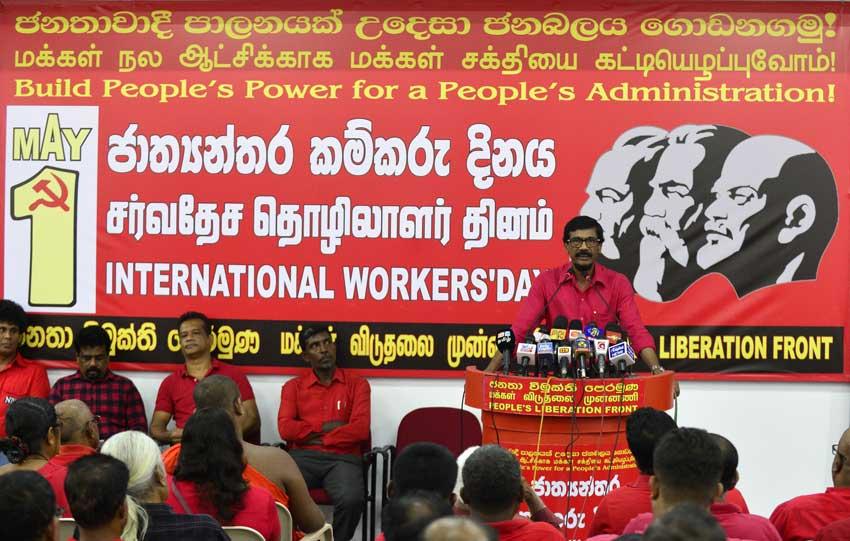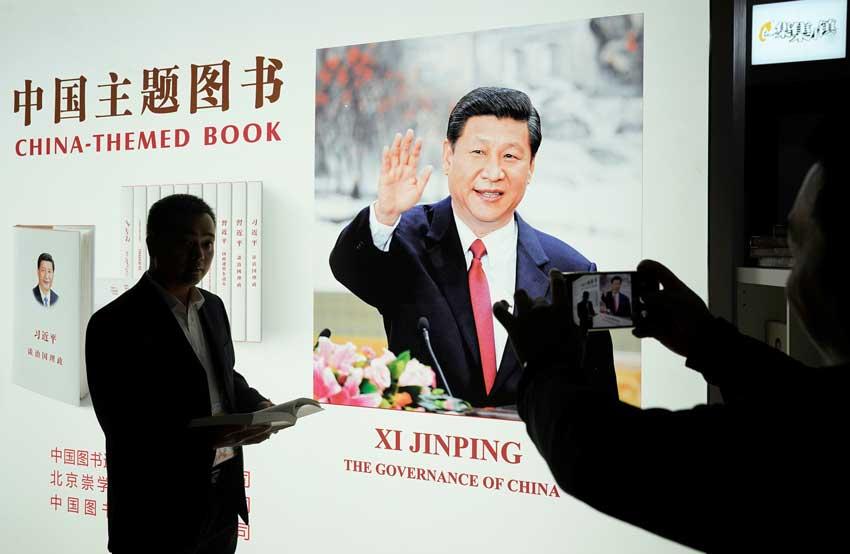Reply To:
Name - Reply Comment

Janatha Vimukthi Peramuna celebrates May Day in 2019 with a gathering which was attended by the media (AFP)
But one factor which has stood in the way of establishing socialism in the island is the presence of the caste system
China is moving away from socialism and embracing capitalism features
But China has turned itself into an ambitious nation and for that it has started loving material possessions
 The year 2020 marks the second year on the trot where the islanders aren’t celebrating May Day with rallies. And the result: it would effect political parties more than the labourers.
The year 2020 marks the second year on the trot where the islanders aren’t celebrating May Day with rallies. And the result: it would effect political parties more than the labourers.
A leading tea company published a souvenir to mark 100 years in the beverage business some years ago. What was striking was that the living conditions of tea pluckers hadn’t changed at all during this period. The irony of all this is that we still see Tamil lawmakers trying to raise the living conditions of estate workers through demands and negotiations sans much success.
The struggle of the labour class has continued with the blessings of past governments, the opposition and trade union activists. But nothing much has changed and those who walk the corridors of power like what they see. The working class has been suppressed for years. This is despite the Sri Lankan governments sharing much on socialism along side its business partner China.
Sri Lanka may be indebted to China, but the islanders can learn valuable lessons from the latter
These two nations have preached so much on the model of socialism. Past governments of Sri Lanka, especially the one led by Sirimavo Bandaranaike, stressed on working towards establishing socialism in Sri Lanka. Socialism provides equality to all and promises a fair distribution of wealth in the society.
But one factor which has stood in the way of establishing socialism in the island is the presence of the class system. The other factor is the caste system.
What’s an eyesore to all is the presence of very old lawmakers, those who are well past retirement age, holding office. And these lawmakers won’t allow or in a subtle way block the progress of low caste workers from climbing the social ladder.
There was a time when China had such cordial relationships with Sri Lanka; especially during the Sirimavo Bandaranaike regime
The caste system has been visible in society since 3rd century BC. When studying Robert Knox’s writing we can observe that there were 13 caste systems present in the Sri Lankan society. According to John Davy, by the year 1821, there had been 23 caste systems while the writings of Professor Tudor Kalinga Silva reveals that there are as many as 14 caste systems.
Social reformist Karl Marx of Germany sowed the seeds to have a society without classes. He spoke of ‘social transformation’ taking the form of a straight line. According to him the old communism gave way to stages like the slave period, the elite age, capitalism, socialism and eventually communism. That was his dream; to establish a classless society and the promise of equality. Marx believed that socialism would eventually lead to communism.
China and Russia embraced socialism at the beginning. But especially China is moving away from socialism and embracing capitalism features. In China the state may be owning all the lands; but growing rich is the fad in the world’s most populated nation.
Past governments of Sri Lanka, especially the one led by Sirimavo Bandaranaike, stressed on working towards establishing socialism in Sri Lanka
For the record the founder of the Janatha Vimukthi Peramuna (JVP) Rohana Wijeweera spoke at length about the importance of his comrades embracing socialism. But the present members of the Red party through their work suggest that their future ambitions are associated with anything but red.
Marx’s theories were full of substance given that he was educated in subjects like economics, political science, history and law. He was against the state model of rule and maintained that the state was there to safeguard the interests of capitalists. He also criticized religions and the roles played by the clergy. He said that religions were born thanks to people being ignorant. Marx also stressed that religion helped shield corruption.

China has turned itself into an ambitious nation and for that it has started loving material possessions (AFP)
China may have built a solid base through socialism theories and maintaining the essential characteristics of socialism. There was a time when China had such cordial relationships with Sri Lanka; especially during the Sirimavo Bandaranaike regime. We remember the Rubber-Rice Pact signed between the two nations in 1952. There were also healthy relationships between the Communist Party of China and the Communist Party of Sri Lanka; tracing back to the prerevolutionary days of China.
But China has turned itself into an ambitious nation and for that it has started loving material possessions. Donald Trump, before he became president of America, once Tweeted saying, ‘China is neither an ally or a friend. They want to beat us and own our country’. The tariff wars between the two countries left the Americans more hurt than the Chinese. That’s how strong China is today. China’s strong points could be not having class differences and not being bogged down by religion.
Sri Lanka may be indebted to China, but the islanders can learn valuable lessons from the latter. While the Sri Lankans haven’t valued the role played by its labourers, due to the availability of unskilled workers who are willing to work for very low wages, China has managed to keep the moral of their workers high despite workmen of this nation also complaining of being paid low wages.
The difference is workmen in Sri Lanka know that the country is stagnated and in debt while the Chinese workers are aware that China’s socialism is supposed to take the country towards its ultimate goal which is communism.